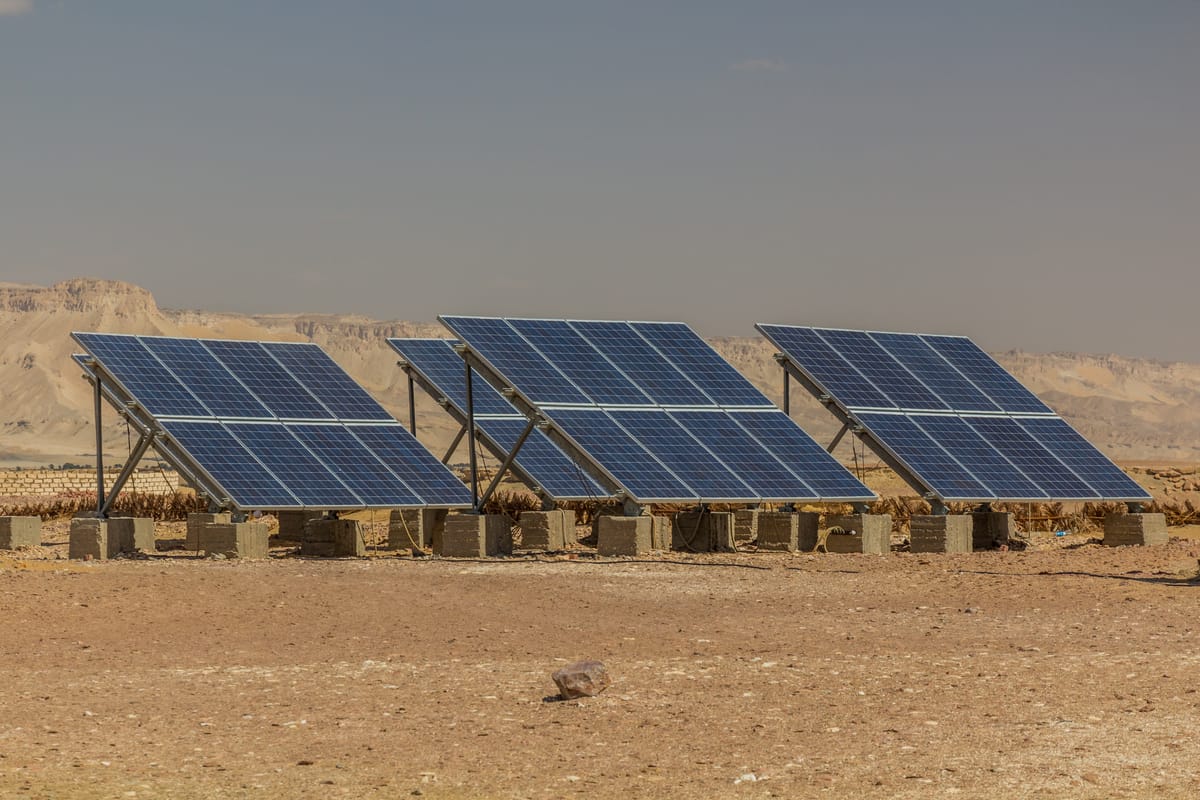This week, we explore the need to scale renewable energy investments in developing countries, how South Korea is leading the way in recycling food waste, and a new mechanism to fund biodiversity.
New report stresses the need for climate investment in developing countries: A new report from the Rockefeller Foundation found 72 of the world's most energy-poor nations need to triple power production by 2050 and are poised to become significant emitters if not supported with investment for renewable energy infrastructure. The report noted that the countries, 44 of which are in Africa, have some of the world's best solar energy potential. In January, the World Bank will launch a $25 billion concessional finance program to provide at least 300 million Africans access to electricity by the end of the decade.
“The fate of 3.8 billion people’s lives and the planet itself will depend on whether we can close the Green Power Gap,” - Dr. Rajiv J. Shah, President of The Rockefeller Foundation
Recycling food waste: South Korea recycles 98% of its 15,000 tons of daily food waste, turning it into fertilizer, feed for livestock, or renewable energy. The country achieved this over two decades following bans on food scraps in landfills and mandates on separating food waste from trash and recycling. Globally, up to 31% of food is wasted, causing 6-8% of global emissions. In the United States, 60% of food waste ends up in landfills, 5% is composted, and 15% is turned into energy.
Americans claimed $8 billion in climate tax credits: Three million American households claimed $8 billion in tax credits for making climate-friendly home investments last year. This included $6 billion in credits for solar panel installations and $2 billion in other improvements, such as new windows, air-conditioning systems, heat pumps, and home insulation. The average household that installed solar panels and batteries for energy storage claimed just over $5,000 in tax credits, which were capped at 30% of the project costs.
Former Tesla employees unleash $10 billion in cleantech investments: Former Tesla employees have launched a series of separate startups that collectively have made nearly $10 billion in investments in U.S. manufacturing and will create more than 10,000 jobs. These include Redwood Materials, which is building two $3.5 billion battery recycling plants in Nevada and South Carolina; Form Energy, which is building a $760 million battery factory in West Virginia; Wallbox, which is building a $70 million factory to make EV chargers; and Lucid Motors, which has a $300 million EV factor in Arizona.
Funding biodiversity through biodiscovery: Negotiators gathering in Cali, Colombia in October for COP16 will work to close the $200 billion gap needed for biodiversity protection and restoration. Considerations include impact bonds and biodiversity credits modeled off carbon credits. Leaders are also exploring a new global system to charge sectors like pharmaceuticals, biotechnology, and agriculture for innovation stemming from the world's genetic resources. This would involve major corporations paying countries for discoveries made from their genetic resources, which the UN estimates could generate $1-10 billion annually for nature.
California's wildfires impact areas earmarked for carbon credits: The Park Fire has destroyed 450,000 acres in California, including 45,00 acres of trees enrolled in the state's carbon offset program, according to estimates from CarbonPlan. Fires earlier this year impacted more than 29,000 acres of forest enrolled in the California program in Washington and New Mexico. While the California program does include a buffer pool to replace losses caused by various events, the impact is so significant it is quickly exhausting the buffer pool and underscoring broader concerns around the permanence of carbon credits.
Mountain bikers rewild land in Wales: As part of its lease of land, private company Bike Park Wales, which welcomes 100,000 visitors to its bike park each year, will pay the government agency Natural Resources Wales to restore and rewind land initially slated for timber production. The plan for the Future Forest Vision includes a multimillion-pound arrangement to cover the costs of both the previous forestry income and nature-restoration efforts.


